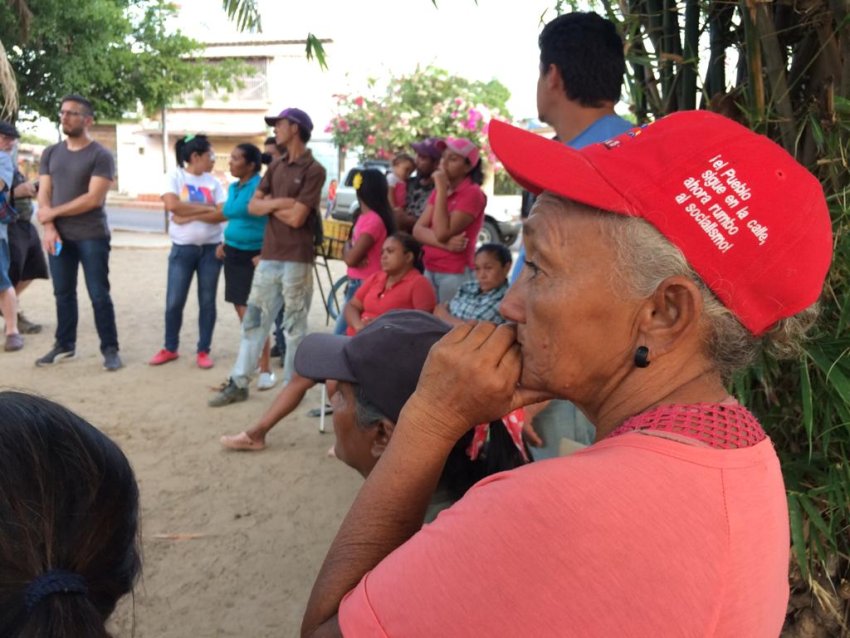
Three solidarity activists who recently returned from Venezuela presented reports to a meeting organised by the Venezuela Solidarity Campaign (Melbourne) and the Latin American Solidarity Network (LASNET) on March 27.
While in Venezuela, the fact-finding mission met with grassroots activists in the poor suburbs of Caracas and elsewhere in the country and representatives from the Bolivar and Zamora Revolutionary Current, Alexis Vive Collective and the LGBTI community, among others.
Freelance journalist Joe Montero showed a video of a huge rally in support of President Nicolas Maduro, demonstrating that the government still has strong support.
Montero said that in the areas they visited there was an atmosphere of discipline and calmness. People are prepared to accept the hardships caused by the US economic sanctions, which are making people more determined, he said.
Montero added that there is a civilian militia with 2 million members ready to defend the country.
Australia-Venezuela Solidarity Network convenor Federico Fuentes said the situation in Venezuela today was “extremely complex and contradictory”.
While many of the gains of the previous Hugo Chavez government had been rolled back as a result of the extreme economic crisis, others remained, such as the mass expansion in access to housing and local doctors, and provided an important buffer to some of the effects of the crisis.
Fuentes noted that though there were little signs of food shortages, hyperinflation meant many goods were out of reach for ordinary people. To help overcome this people were receiving cheap food from the government through the Local Committees for Food Production and Distribution.
Grassroots democracy continued to be practised in poorer areas through the communes and community councils, which in some cases were providing much need networks for the distribution of basic goods at cheaper prices.
At the same time there has been a large growth in illegal economic activities and corruption, as well as a growing emigration out of the country, as people find other ways to deal with the crisis, Fuentes said.
Nevertheless, Chavismo endures as a radical, anti-imperialist movement of the poor.
Fuentes noted that within the movement there are different opinions on Maduro, ranging from support to opposition, with some supporting him “for now”.
The priority for solidarity activists must be to end the sanctions imposed on Venezuela by the US and its allies and to oppose the attempted coup and ongoing foreign intervention, Fuentes said.
LASNET’s Lucho Riquelme said that the negative effects on the economy of bad management by the Venezuelan government had been deepened by US sanctions.
But he said people still support the government, because they do not see the opposition as an alternative.
According to Riquelme, the Venezuelan people are ready to face a possible invasion but in the mean time are organising from below to solve their problems.
Riquelme said that Venezuela is still capitalist, but activists want to create a socialist society. He announced a fund drive to raise money to send a container full of material needed by a local community in Venezuela.